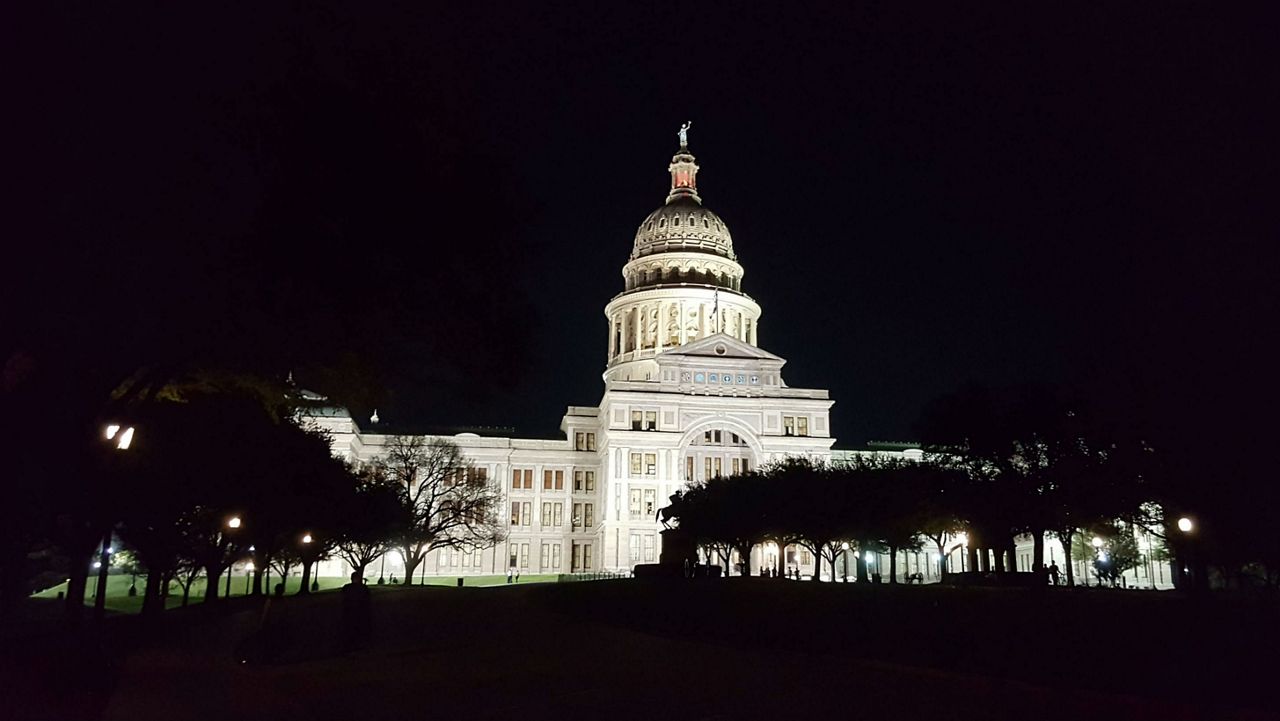TEXAS — The Texas Legislature wrapped up the third week of its 140-day session Friday with two of the most important items remaining at the forefront of its duties: Pass a budget and outline a redistricting plan.
While the focus was on those two big items, COVID-19 still loomed large over the session, with each chamber setting its own guidelines for masks and testing. In the Senate, lawmakers must test negative before entering the chamber. The House doesn’t require testing, but they may vote remotely using a laptop. Both chambers require masks on the floor, but lawmakers may remove them while speaking in a microphone.
At least four lawmakers have tested positive for COVID so far this session. There have been calls for lawmakers to get vaccinated, but that has been complicated by criticism that it could put them ahead of front-line health care workers and those in the most vulnerable populations.
The budget, of course, is the one that has to get done according to the state constitution. At the beginning of the session, the Texas State Comptroller said the state had about $112 billion to spend for the budget period from 2022 to 2023. That’s about 0.4% less than lawmakers passed in 2019 for the 2020 to 2021 budget of $112.96 billion.
Interestingly, the House and Senate both submit their own proposed spending plans at about $119 billion. It’s unusual that both chambers would submit such similar spending plans, but considering the economic impact of COVID, nothing has been usual this year. Lawmakers must now figure out how to reconcile the $7 billion more they need to pass their version. Federal funding in the form of COVID relief and other aid packages could make up for that loss.
The Senate budget was referred to the Finance Committee this week. Hearings on the budget will start on February 8.
Because of a delay in receiving data from the U.S. Census Bureau, the issue of redistricting will likely require a separate, special session this summer. However, the Texas Senate Special Committee on Redistricting began this week meeting each morning to discuss different regional issues across the state.
They began on Monday with West Texas, which will likely face the most changes during the redistricting process as more Texans move out of rural parts of the state and into the urban areas. As a result, rural districts could see some boundaries extended to include more geographical coverage area for State House seats, while urban districts could pick up some new districts. Texas has seen a remarkable population increase in the last decade and will likely pick up as many at three new congressional districts.
Next week, the special Senate committee will begin discussing the major urban centers in the state during their redistricting discussions.
What else happened in the Capitol?
- Speaker of the House Dade Phelan, who was elected at the start of the session, said he would announce committee assignments next week. Before the session started, Phelan said he supported the Texas tradition of having some committees chaired by Democrats, a system that he said has worked well in the past and should remain. Some state legislatures only allow majority members to chair committees.
- Rep. Kyle Biedermann, a Republican representing House District 73, this week, as promised, submitted HB 1359, the Texas Independence Referendum Act. The bill, if it passes, would initiate a referendum asking “the people of the State of Texas on the question of whether this state should leave the United States of America and establish an independent republic.” Biedermann’s proposal of the bill had drawn sharp criticism from many even in his open party, who have called it un-American. There is no indication that the bill will get further than in the House registry, but on Thursday, Biedermann said an online petition on his website supporting the bill had received 3,000 signatures overnight, bringing the total to 12,000. Biedermann said he hoped to get to 20,000, although the petition has no legal ramifications.
- So far, hundreds of bills have been filed in both chambers, but only one House member can claim the superlative of having filed the most out of a freshman cohort of lawmakers so far this session. Rep. Jasmine Crockett, a Democrat representing the Dallas-area District 100, has filed 16 bills so far and is said to have more than 20 others being drafted. Her bills address issues of justice reform and voting rights, as well as ensuring COVID economic recovery efforts benefit the state’s most vulnerable communities. Crockett, 39, was elected in November and is the youngest member of the Black Caucus.
- Lawmakers in both chambers submitted companion bills this week addressing at least one aspect of the frustratingly slow and convoluted rollout of the COVID vaccine. The bills, SB 468 in the Senate and HB 325 in the House would “flip the switch” on the state’s vaccine registration process by allowing Texans to “opt-out” of the registry instead of having to “opt-in” to get on the registry to get the vaccine. Proponents of the companion bills say this technical change could help speed up the process.



